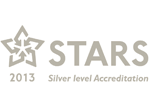Modern Foreign Languages
Intent
Learning a foreign language is a liberation from insularity and provides an opening to other cultures. The 2014 National Curriculum for Modern Foreign Languages aims to ensure that all children:
- Understand and respond to spoken and written language from a variety of authentic sources.
- Are able to speak with increasing confidence, fluency and spontaneity, finding ways of communicating what they want to say, including through discussion and asking questions, and that they are continually improving the accuracy of their pronunciation and intonation.
- Can write at varying length, for different purposes and audiences, using the variety of grammatical structures that they have learnt.
- Discover and develop an appreciation of a range of writing in the language studied.
A high-quality languages education should foster children’s curiosity and deepen their understanding of the world. At St Theresa’s, we are committed to ensuring that teaching enables pupils to express their ideas and thoughts in another language and to understand and respond to its speakers, both in speech and in writing. We recognise that competence in another language enables children to interpret, create and exchange meaning within and across cultures.
At St Theresa’s we are committed to ensuring our MFL teaching provides the foundation for learning further languages, as well as the means to access international opportunities for study and work later in life. The teaching of French in and KS2 provides an appropriate balance of spoken and written language and lays the foundations for further foreign language teaching at KS3.
Implementation
In KS2, each class has a timetabled Spanish lesson of 45 minutes.
Lessons across the Key Stages support the skills of speaking, listening, reading and writing:
- Children are taught to listen attentively to spoken language and respond, joining in with songs, rhymes and games.
- Links have been developed with secondary schools and children from KS3 visit to disseminate language learning to the children.
- Children develop an appreciation of a variety of stories, songs, poems and rhymes in French that are delivered through the curriculum content, as well as by native French speakers within the wider school community.
- Cross curricular links with computing are provided using SEESAW.
- We follow the primary MFL scheme of work from Primary Languages.
Knowledge and skills in French are progressive from one year to the next and are mapped across the school, in line with the Camden Primary Languages scheme of work. Cross curricular links have been identified and the school’s own context is considered as part of curriculum planning.
Impact
Through the high quality first teaching of French taking place we will see the impact of the subject in the following ways:
- Children will be able to communicate with each other in French.
- Children will become aware that a language has a structure, and that the structure differs from one language to another.
- Children will develop their language through development of the four key skills of speaking, listening, reading and writing.
- Children will enrich their language learning by developing an understanding of the Spanish culture.
- Children will learn how language skills can be applied to a range of languages.
- Children will transfer to KS3 effectively and successfully and will be well prepared to continue and develop their language skills.







